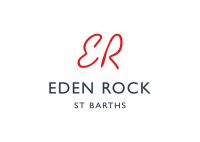
Eden Rock – St Barths participates in a major ecological action on the island of St Barths (Saint Barthélemy)
First hotel established on the island, Eden Rock – St Barths always has shown a strong commitment to island life. |
 |
Eden Rock – St Barths participates in a major ecological action on the island of St Barths (Saint Barthélemy)
First hotel established on the island, Eden Rock – St Barths always has shown a strong commitment to island life. |
Category: North America & West Indies / Carribean islands - Saint Barthélemy - Exclusive experiences
- What's new?
This is a press release selected by our editorial committee and published online for free on 2019-06-19
Filed by Eden Rock - St Barths
In past years this iconic hideaway has invested more and more frequently for a sustainable future, introducing electric cars, banning non-LED light bulbs and seeking to eliminate plastics. Together with Oetker Collection as active “UN Global Compact” member, the property strives towards integrating Corporate Social Responsibility at each step along the way of its daily operations. Preserving St Barths ecosystemsSt Barths’ landscape includes several lagoons whose ecological role is disturbed by their ageing. Just behind the hotel, St Jean’s lagoon was a good example of this suffering as it was from numerous anthropic pressures so disrupting its ecological role. It was important to restore the exhausted lagoon into an effective area of wilderness.
Following independent analysis the island’s Collectivité launched the rehabilitation project and Eden Rock was pleased to be one of the major contributors to this action. Five years of planning and scientific study plus twenty-four months of work have been necessary to restore this 12-acre area which now is circled by a one-kilometer boardwalk which has converted the lagoon into the ideal area to jog, walk, or admire the countless numbers of wild bird life and fish life now enjoying the wilderness of the St Jean lagoon.
Eden Rock – St Barths has led and financed its part of this work being the ocean connection of pipes to link the new lagoon with the sea and so ensure a salt-water environment changed twice daily by the ocean’s natural tides.
‘We have been pleased to play a part in helping St Barths’ government to restore the previously exhausted brackish water lagoon in St Jean. It is a terrific improvement for the ecosystems and so also for the enjoyment of the island residents and visitors’ states Eden Rock’s David Matthews.And Eden Rockers’ teamworkThe Corporate Social Responsibility team of Eden Rock – St Barths, also known as “Eden Angels” contributed to the project with fellow islanders within “Island St Barth Nature Experiences”.
In addition, the team took part periodically in the planting of more than 12,000 mangrove trees within this new habitat.
All of this work has been delivered in the framework of a Public Private Partnership and solely as a community benefit for island inhabitants and island visitor guests to enjoy together during many years going forwards.
|
|




